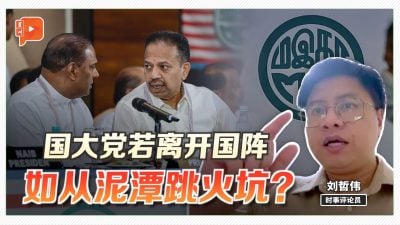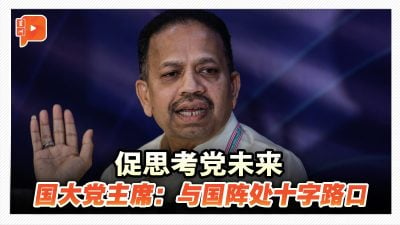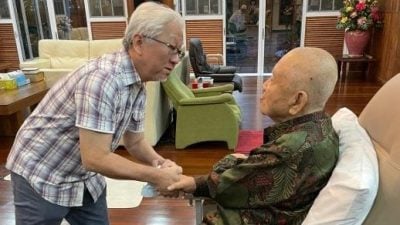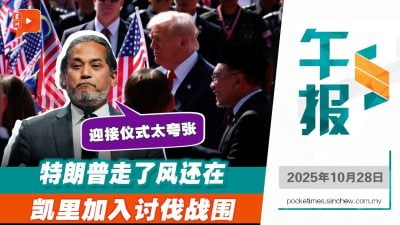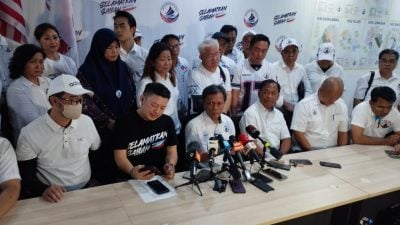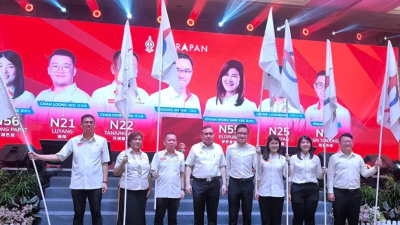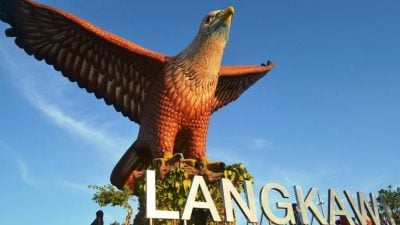When the Malays feel disenchanted by the prevailing political environment, PN’s Bersatu and PAS will come in naturally as an inviting alternative.
Will the six state elections mark the final moments of the unity government? Many people are actually searching for the answer!
The coming elections are seen as a battle finale among the Malays, but that does not mean the Chinese can stay out of the business.
As the Malay proverb goes: Gajah sama gajah berjuang, pelanduk mati di tengah-tengah, which means when the two elephants fight, the deer will die in the middle.
To take down PM Anwar Ibrahim, former PM Mahathir has kept pressuring the Malay community, often in a menacing manner, irresponsibly misguiding the community to mold the Chinese into an imaginary foe.
Sandwiched between the Malay warlords, the Chinese will invariably become convenient targets of assault.
In order to fight for a bigger slice of Malay vote, and power, Tun Mahathir has resorted to fanning racial emotions without taking into account the disastrous consequences, repeatedly depicting the non-Malay community as the biggest threat to the well-being of the Malays.
Desecrating his stature as a once respected former prime minister of this country, this old man now finds joy in distorting facts and truths.
Meanwhile, even as the High Court has ruled that Chinese and Tamil primary schools do not violate the Federal Constitution, Chinese language education continues to come under tremendous onslaught.
The Malaysian Islamic Education Development Council (MAPPIM), the Federation of National Writers Association (GAPENA), Malaysian Muslim Solidarity (ISMA) and other NGOs are unhappy and have vowed to appeal against the court ruling, arguing that vernacular schools should come under public authority and that only BM as medium of teaching is constitutional.
The local Chinese community should closely watch the development of this case. If the Court of Appeal eventually decides that vernacular schools should come under public authority, this will mean Chinese and Tamil primary schools must switch the medium of teaching in order to secure government funding.
So far we are still unsure how the judges at the Court of Appeal will define public authority, but according to lawyers defending vernacular schools, only the Ministry of Education is public authority, as Chinese and Tamil primary schools do not have the power to set their own curricula.
Back to the state elections, no doubt Chinese or non-Malay voters will fully back the unity government in the elections. But what about the Malays?
First and foremost, Tun M and PAS president Hadi Awang will marshal the brutal onslaught against non-Malay communities and the country’s multicultural reality during the election campaign. Such an anti-multiculturalism clamor will unfailingly receive a boost, causing conservative Malay electorate, as well as undecided fence-sitters, to swing away from the unity government.
Secondly, the unity government is upbeat about retaining the Selangor administration, believing they will score a decisive victory there. They also believe the 3-to-3 status quo could be maintained.
We have to closely monitor how the PN is going to mobilize the masses during the election campaign in order to conclude whether the “green wave” is still strong or is slowly ebbing.
PN expects itself to win big in Kelantan, Terengganu and Kedah, and is setting its sights on Selangor. As such, no one should underestimate the probability of the coalition creating a miracle in Selangor.
From my personal observation, it is obvious that the “green wave” is gaining momentum rapidly, and its influences over the masses and public sector are easily visible.
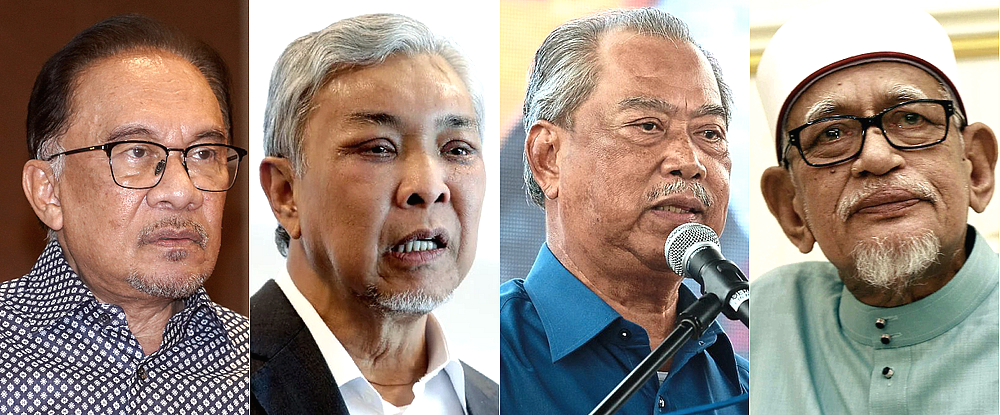
Thirdly, not many think that Umno will help garner more Malay support for the unity government.
The 15th general election has dealt a severe blow on Umno, tearing the party further apart.
The Umno grassroots still find a collaboration with the party’s long-standing rival, DAP, unacceptable.
Without convincing new narratives and policies, Umno will have a hard time winning over the trust and support of the Malays, especially with its leader still implicated in corruption cases.
Right now this party can only find momentary refuge under the shelter of the unity government.
Additionally, we have witnessed earth-moving changes globally after the coronavirus pandemic, with many countries plagued by slowing economy, stagflation and an anemic consumer market, among other stifling challenges.
Malaysia is not spared, and such market inactivity is deeply felt by many local businesses.
Malaysians are struggling under tremendous financial pressure, in particular the Malays in the lower segment of the society.
It is detestable that irresponsible politicians continue to exploit the situation to confound the masses in a bid to win their votes, making them feel fearful for their own future in so doing.
Consequently, to some extent the “Malay rights under threat” narrative works pretty well in the Malay society, and this will have some effects on the election outcome.
Lastly, against the backdrop of political instability and frequent PM changes over the past four years, civil servants have become a determinant factor for the government’s destiny.
While the prime minister and his government could fall anytime, this group of people will remain always rock solid. Because of this, civil servants actually have a bigger say and clout over the Malaysian political climate.
Understandably, politicians are doing their utmost to please this group of people in hope of securing their support and approval.
Next month’s state elections will have a strong bearing on the nation’s future, and the aforementioned factors can sway the final outcome.
If unfortunately the unity government or PH is defeated in the Selangor election, the federal administration could be in jeopardy.
When the Malays feel disenchanted by the prevailing political environment, PN’s Bersatu and PAS will come in naturally as an inviting alternative.
Cooking up sensitive racial and religious issues in generating a powerful sense of crisis has always been a potent tool which can be exploited to gain community support ever since the dawn of nationhood. This is a sad reality for the country and her people.
Today, Malaysians of all races have failed to see a promising future because our leaders have never promised us one. They are only concerned about how to consolidate their hold to power by inciting their own people, not the well-being of the general population.
Up till now most Malays are still happy to be taken for a ride by leaders of their own community, instilled with the illusory notion that their survival is very much tied to government assistance, without realizing that they can actually go much further if they would stand on their own feet.
Meanwhile, Chinese Malaysians have failed to see the need for risk diversification, not knowing how to put their eggs in different baskets, just as the Malays are experiencing unprecedented disunity.
Many are blindly taking instructions from their leaders. If leaders of the party they trust tell them to support PAS, they will happily conform.
In a similar manner, for fear of the overpowering “green wave,” many will unhesitantly embrace Umno they once despised as embodiment of corruption and bigotry.
Many of our political leaders on either side of the divide have lost their principles, their convictions conveniently abandoned and their value systems utterly bewildering.
We will continue to be manipulated and exploited by these politicians unless we can think independently and choose wisely.
Having sailed in the open seas for decades, our ship has yet to dock at the harbor because our captains throughout the years have been incited and hoodwinked by the crew. As a result, we are engrossed with fighting among ourselves aboard the ship without realizing that our real enemies are the hostile weather, tempestuous storms and heinous pirates.
By comparison, many other ships have already docked safely because they are steered by capable captains.
In the meantime, we are still left alone faltering in rough seas.
ADVERTISEMENT
ADVERTISEMENT







